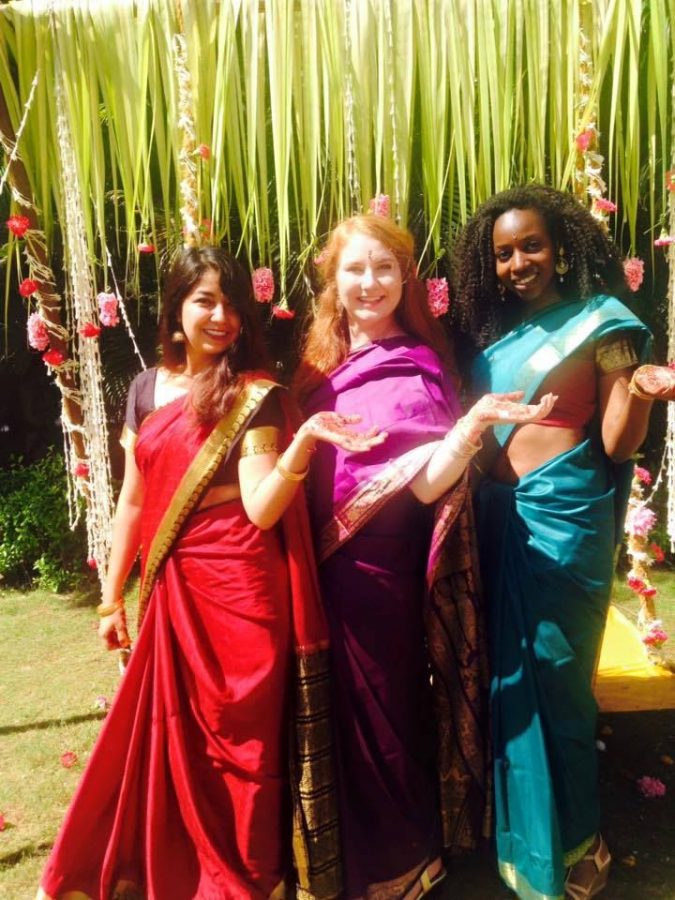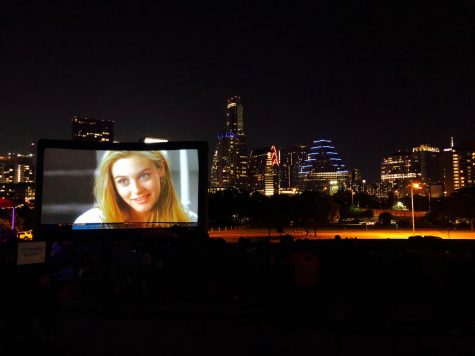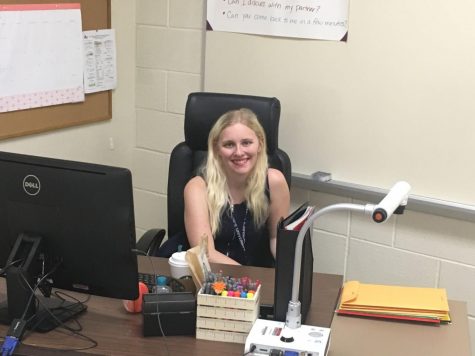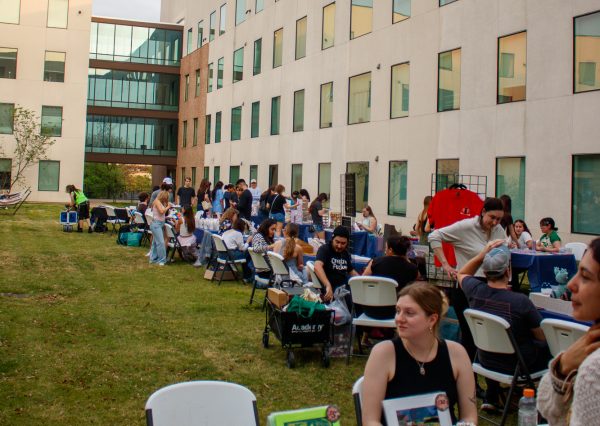Samantha Mendoza in India: Seven Months of “Who Knows” and “Parava-illai” in India
Samantha Mendoza (‘15) is a Fulbright-Nehru scholar teaching English at the Madras Christian College Higher Secondary School in Chennai, India. She arrived to the country July 2015 and will be heading back to the States to complete a Graduate degree in Journalism in this May.
Funny things happen when you attempt to learn one of the world’s oldest living languages.
Sometimes you accidentally say “I died this morning” instead of “I have just woken up this morning” because the “zh” sound in the Tamil word “ezhundhu” is almost impossible for you to pronounce correctly.
Sometimes a sixth-grade student named Nikitha throws her arms up in frustration after you point to your ear and say “forest” for the 65th time during a quiz on body parts.
Sometimes you intend to order five biscuits to go along with your steamy,sweet milk chai from a tea stall across the street, only to end up with a bag of twenty and a distinct expression of what-just-happened-and-how-have-I-survived-in-this-city-for-seven-months on your face.
As my time as an English Teaching Assistant in the state of Tamil Nadu, India begins to dwindle down to the final few months (has it really almost been a year?), I find myself asking this question only slightly less often than I did upon first arriving in this country.
How have I lasted this long when I still don’t know how the whole no-toilet-paper, bucket-of-water in the public bathroom thing works?
Do I really still need a team of five co-teachers to surround me, shielding me with their arms as they adjust my sari (for the fortieth time) the moment I walk onto campus every Friday morning?
WIll it ever be possible for me to speak at a decibel below 120 after shouting to get the attention of a room of 55 thirteen-year old boys eight hours a day, six days a week?
The answer to each of these questions is “who knows,” an answer that I have become quite comfortable with throughout the past few months.
In fact, I’ve grown to embrace the certainty of uncertainty, the knowledge that nothing will go as planned, but somehow everything will work out just as it’s supposed to. There’s a word for this in Tamil, and thankfully it made the cut of “Twenty Tamil Words That Have Actually Stuck in Sam’s Memory,” or “Proof that my ₹3000 a Month for Tamil Lessons Aren’t Completely Going To Waste.”
The word is parava-illai, which means, It’s ok. No worries. Hakuna Matata.
What a wonderful phrase to integrate into my daily vocabulary, a beautiful lens through which to view the chaotic, unpredictable life of an English teacher at a school of over 4,000 students!
My co-teacher tells me the moment I walk into the classroom of 50 expectant faces that she wants me to lead a lesson from the textbook that I haven’t prepared for? Parava-illai.
My students want me to “sing the American anthem, ma’am” on the spot and all I can do is wince as I hear myself butchering the high notes while pressing my hand to my chest and waiting anxiously for the triumphant sound of “home of the brave” so that I can stop? No worries.
I volunteer myself to be in a charades competition with my co-teachers that is conducted entirely in Tamil? It will be ok.
And I really do believe that it will be ok. In fact, I know that it will be because an elephant trainer told me so while I was climbing an elephant named Kulfi.
Ok, bear with me. When I was in Jaipur–“The Pink City” in the northern state of Rajasthan–for my 10-day school holiday in October, my roommate and I somehow found ourselves painting, climbing, and riding elephants at an elephant sanctuary, appropriately named “Elefriends” and conveniently located behind a gas station.
“You know what they say,” said the young boy who coaxed me onto Kulfi’s back, guiding the majestic creature throughout my ride
“In India, anything is possible, except for one thing: nothing.”
They don’t actually say that. In fact, I haven’t met a single person aside from this mysterious, elephant-whispering prodigy in the entire country of India recite this phrase.
But when a mysterious, elephant-whispering prodigy gives you roadside wisdom while you’re climbing an elephant behind a gas station, well…you tend to believe him. So I’ve carried this sense of wonder, this promise of endless possibilities with me throughout my time in India.
I’ve found like most words that come from the mouths of elephant-whispering prodigies, the saying is entirely true.
For instance, in India, it is entirely possible for you to be in the front row of a Bollywood dance at the wedding of a sister of a friend of a friend who you’ve only met twice. It’s possible to have the Bengali woman who sits across from you at your favorite masala dosa spot down the street proposition you to marry her thirty-year old son (“He wants a girl like you. Half Western, half-Indian. But more Western!”).
It’s even possible to wake up in the morning with mosquito bites on your eyelids (that’s right, your eyelids), in addition to your cheeks and underarms because, in the words of my seventh-grade student Priscilla, “I can hear them singing in my ear while I’m sleeping! They sing to me at night!”
But above all, it’s possible to find yourself staring in a February mirror at a person who is almost unrecognizably humbled, whole, and healthy, your seven-month Indian self, and realizing that even though nothing has gone entirely as planned and you have mosquito bites on your eyelids, everything has worked out, exactly as it was supposed to. Parava-illai. It is ok. Two months to go. Anything is possible.









